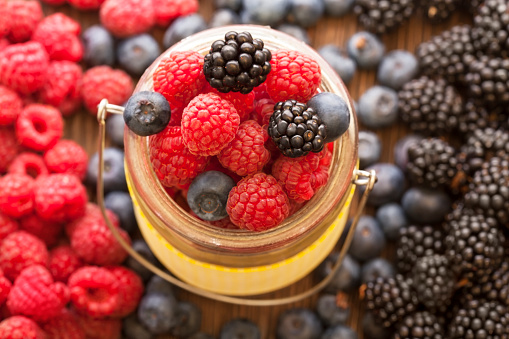 You know that expression, “When you got to go, you got to go?”
You know that expression, “When you got to go, you got to go?”
There are times when you want to use the washroom, but sometimes nature just doesn’t call. Bloating, gas, and the discomfort of suffering from constipation can really make a person feel uncomfortable. It can consume their entire day until they actually release their bowels.
Every year, constipation affects about two percent of the U.S. population; women and children are more prone to constipation than most men.
Constipation occurs when you have difficulty releasing your bowels. The length of time where a person releases their bowels varies; some people can release three times a day, whereas others may only release one to two times a week.
If you have gone at least three days without releasing your bowels, then you may be constipated. After the three-day period, the feces will begin to harden, which will make releasing your bowels extremely difficult and painful. If you have less than three bowel movements each week, or experience any of the following symptoms more than 25% of the time when releasing your bowels, then you may be constipated:
- Strain/difficulty when releasing your bowels
- Hard or irregularly small stools
- Incompleteness after releasing bowels
What Causes Constipation?
In most cases, constipation is caused by a disorder of the bowel function instead of a structural problem. Below are the most common causes of constipation:
- Lack of water intake
- Lack of fiber in the diet
- Straying away from the diet
- Not enough exercise or mobility
- Eating large intakes of dairy products
- Stress
- Not releasing your bowels even when you know you have to go
- Depression
- Eating Disorders
- Pregnancy
- Colon Cancer
5 Foods to Eat When Constipated
The best way to beat constipation is to eat the right types of food:
1. Berries: Berries are high in fiber and are also low in calories, which make them a perfect remedy for dealing with constipation. Half a cup of berries (i.e. blueberries, raspberries) provides you with two grams of fiber.
2. Dried fruit: Most dried fruit is high in fiber and contains a compound called sorbitol, a natural laxative that will help speed up the digestion process. Add them to any meal as a side, or use them as a snack between meals.
3. Whole-grain bread: Whole grains are low in fat and high in dietary fiber; they also contain high amounts of complex carbohydrates.
4. High-fiber cereal: I know high-fiber cereal is sometimes associated with the taste of cardboard! But there are a variety of tasty high-fiber cereals on the market that will help with constipation. Choose a cereal that provides you with at least five grams of fiber per serving.
5. Nuts: One ounce of nuts gives you almost four grams of fiber. They are great for curing constipation—just watch how much you consume, because they are high in calories.
Consume at least 25 to 30 grams of fiber a day. It speeds up the metabolism and helps flush out the bowels. Make sure that you drink lots of water; if there isn’t a sufficient amount of water in your bowels, it can stop the process or slow it down. Consuming at least 64 ounces of water a day should be a sufficient amount.
Foods that Cause Constipation
Constipation is usually caused by a mixture of certain foods that cause the bowel movement disorder. Try to avoid the following foods:
1. Red meat: Consuming read meat a few times a week can cause a feeling of a “buildup” in your stomach. If you are going to eat red meat, make sure to include a source of fiber alongside it.
2. Dairy products: Dairy is typically high in fat and low in fiber—this is the main reason why these products have such a high reputation for causing constipation.
3. Frozen dinners: When you get home from a long day at work, the last thing you want to do is slave over a hot stove and cook dinner. Frozen dinners may be convenient and easy to make, but they are typically low in fiber, but high in fat and sodium—you now have yourself a perfect recipe for constipation.
4. Chips: They may be tasty and crunchy, but chips contain high amounts of fat; chips will delay the digestion process and give you that bloated feeling.
5. Cookies and pastries: Tasty pastries are generally low in fiber, low in fluids, and are extremely high in fats. In order to prevent constipation, decrease the intake of these foods.
Remember, your daily fiber intake is essential for your digestive system. Your diet should always consist of foods that are high in fiber; not only does it make you feel full, but it will also help with your bowel movements.
Sources:
Orenstein, B.W., “10 Foods That Help Relieve Constipation,” Everyday Health web site, January 6, 2015; http://www.everydayhealth.com/digestive-health-pictures/10-foods-that-help-relieve-constipation.aspx#10.
“Top Constipation Foods: 5 Foods to Avoid and 5 to Eat,” MedicineNet.com; http://www.medicinenet.com/constipation_foods_5_foods_to_avoid_and_5_to_eat/views.htm.
Myers, W., “7 Foods to Avoid for Constipation Relief,” Everyday Health, March 31, 2011; http://www.everydayhealth.com/constipation-pictures/foods-to-avoid-for-constipation-relief.aspx#07.
